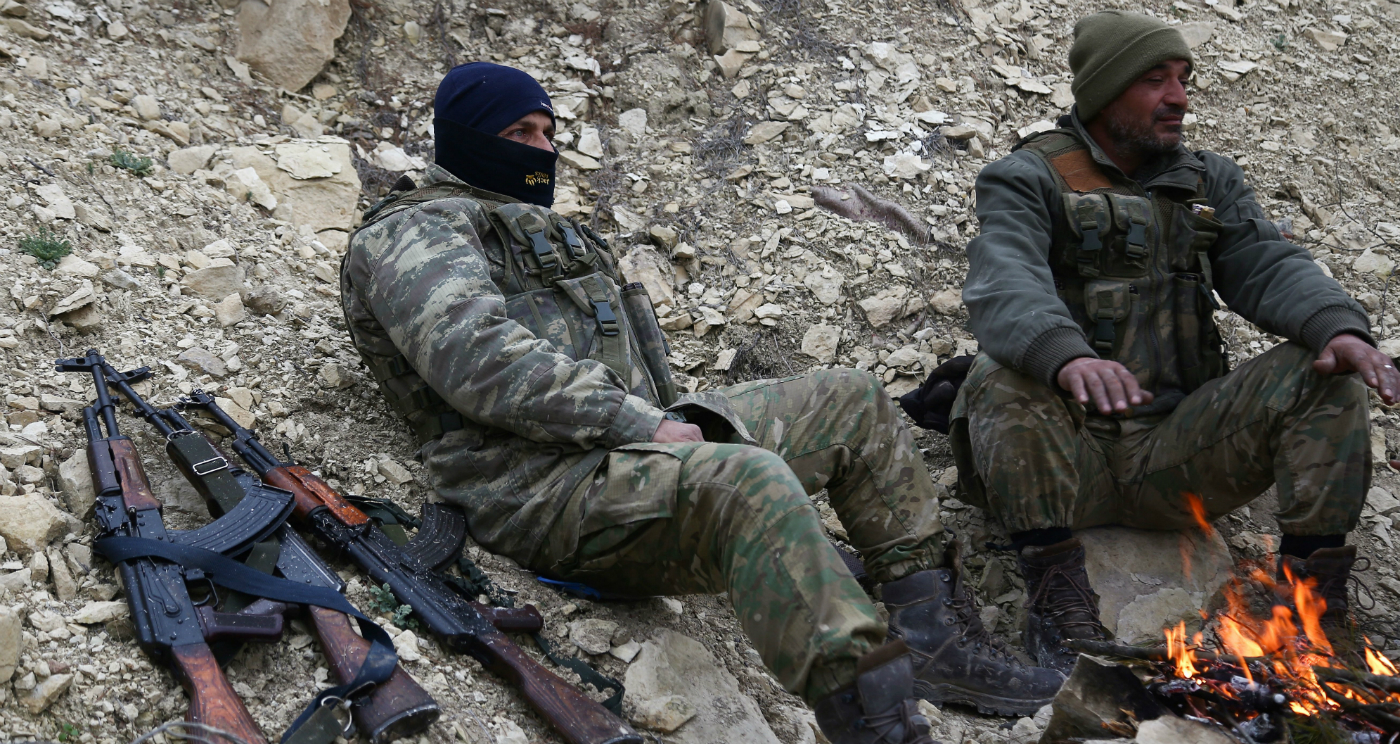Why the Turkey-Syria border conflict is a ‘proxy war’ for US-Russia
In Depth: America sidelined as Nato ally Turkey attacks US-backed Kurdish fighters

A free daily email with the biggest news stories of the day – and the best features from TheWeek.com
You are now subscribed
Your newsletter sign-up was successful
Ankara today announced its first two combat deaths in Turkey’s clash with US-backed Kurdish fighters south of the border in Syria - a battle many see as a proxy war pitting Russian military might against a weakened America.
“Relations between Turkey and Russia have been gradually getting closer in the context of the Syria conflict, whereas tensions have been rising between Ankara and Washington, which backs the Kurdish fighters in northern Syria,” reports Al Jazeera.
The armed conflict began on Saturday and pits America against its fellow Nato member in a territory where US diplomatic ties have been sorely tested already by the wars in Syria and Iraq.
The Week
Escape your echo chamber. Get the facts behind the news, plus analysis from multiple perspectives.

Sign up for The Week's Free Newsletters
From our morning news briefing to a weekly Good News Newsletter, get the best of The Week delivered directly to your inbox.
From our morning news briefing to a weekly Good News Newsletter, get the best of The Week delivered directly to your inbox.
“The Turkish offensive, carried out over the protests of the US but with the apparent assent of Russia, marks a perilous new phase in relations between two Nato allies - bringing their interests into direct conflict on the battlefield,” The New York Times says. “It lays bare how much leverage the United States has lost in Syria, where its single-minded focus has been on vanquishing Islamist militants.”
The ties that bind
Historically, Russia has supported Syrian President Bashar al-Assad, who has waged a seven-year war against the dual threat of Islamic State militants and the Syrian rebels who want to overthrow his regime.
And now Moscow has entered into an “agreement” with Ankara on the border war against US-backed Kurdish fighters, Turkish leader Recep Tayyip Erdogan said yesterday.
A free daily email with the biggest news stories of the day – and the best features from TheWeek.com
The US, meanwhile, supported Syrian rebels trying to overthrow Assad during the Obama regime - although the Trump administration appears to have pulled back from such covert operations, The Atlantic magazine reports.
Crucially, however, the US announced plans last week to train up a 30,000-strong border protection force in northern Syria to prevent Isis from returning. That border force will consist mainly of members of the Kurdish People’s Protection Units (YPG) - considered by the Turkish government to be a terrorist group.
Offensive Olive Branch
President Erdogan has accused the US of building an “army of terror” on his border. After threatening to drown the US-backed forces, Erdogan launched “Offensive Olive Branch” in northwestern Syria this weekend.
The bloody conflict has so far left 50 people dead during three days of intense shelling and air strikes, The Guardian reports.
It has also left the US watching from the sidelines, The New York Times reports, while Russia aligns itself with Turkey and accuses the US of encouraging the Kurds and aggravating the Syrian conflict.
So far, the Turkish border operations are confined to targets around Afrin, a region about 30 miles north of Aleppo that is of limited strategic concern to the US.
Syrian expert Andrew J. Tabler told the newspaper that the big question is whether Turkey will push further into Syria.
“That could bring Turkey into conflict with the main force of Kurds, and even potentially, with American troops,” Tabler said.
-
 ‘Poor time management isn’t just an inconvenience’
‘Poor time management isn’t just an inconvenience’Instant Opinion Opinion, comment and editorials of the day
-
 Bad Bunny’s Super Bowl: A win for unity
Bad Bunny’s Super Bowl: A win for unityFeature The global superstar's halftime show was a celebration for everyone to enjoy
-
 Book reviews: ‘Bonfire of the Murdochs’ and ‘The Typewriter and the Guillotine’
Book reviews: ‘Bonfire of the Murdochs’ and ‘The Typewriter and the Guillotine’Feature New insights into the Murdoch family’s turmoil and a renowned journalist’s time in pre-World War II Paris
-
 Epstein files topple law CEO, roil UK government
Epstein files topple law CEO, roil UK governmentSpeed Read Peter Mandelson, Britain’s former ambassador to the US, is caught up in the scandal
-
 Iran and US prepare to meet after skirmishes
Iran and US prepare to meet after skirmishesSpeed Read The incident comes amid heightened tensions in the Middle East
-
 Syria’s Kurds: abandoned by their US ally
Syria’s Kurds: abandoned by their US allyTalking Point Ahmed al-Sharaa’s lightning offensive against Syrian Kurdistan belies his promise to respect the country’s ethnic minorities
-
 Israel retrieves final hostage’s body from Gaza
Israel retrieves final hostage’s body from GazaSpeed Read The 24-year-old police officer was killed during the initial Hamas attack
-
 China’s Xi targets top general in growing purge
China’s Xi targets top general in growing purgeSpeed Read Zhang Youxia is being investigated over ‘grave violations’ of the law
-
 Syria’s Islamic State problem
Syria’s Islamic State problemIn The Spotlight Fragile security in prison camps leads to escape of IS fighters
-
 Panama and Canada are negotiating over a crucial copper mine
Panama and Canada are negotiating over a crucial copper mineIn the Spotlight Panama is set to make a final decision on the mine this summer
-
 Why Greenland’s natural resources are nearly impossible to mine
Why Greenland’s natural resources are nearly impossible to mineThe Explainer The country’s natural landscape makes the task extremely difficult